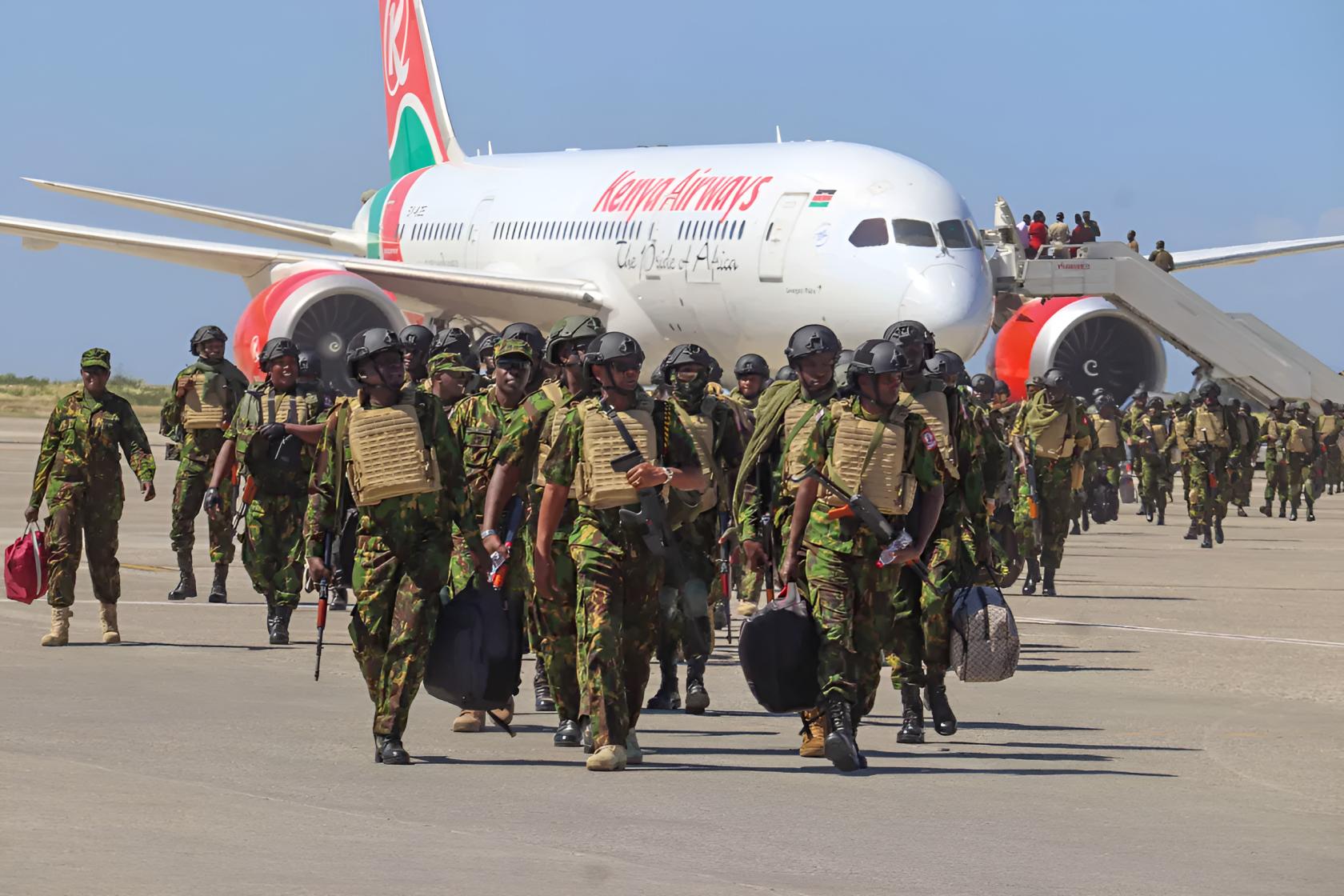The first group of 400 Kenyan police officers deployed to Haiti under the Multinational Security Support (MSS) Mission is expected to return home in June after completing their one-year assignment.
MSS spokesperson Jack Ombaka confirmed to the Daily Nation that the officers, who left for Haiti on June 25, 2024, are concluding their term of service.
"The officers have signed a one-year contract, and that means those who left on June 25 will be returning home soon," he said.
Following the initial deployment, a second group of 600 officers joined the mission in October, with a third batch of 217 officers arriving in Port-au-Prince on January 18.
The MSS Mission is headed by Godfrey Otunge. Kenya has been leading the UN Security Council-approved mission, which has encountered deadly confrontations with criminal gangs in the Caribbean nation.
Sadly, Kenya has recorded two casualties during the mission. Officer Samuel Tompoi lost his life during an attack and has since been laid to rest in Kenya.
In another incident, Benedict Kabiru was captured following an ambush by gangs.
While the Haitian government acknowledged his death, the Kenyan authorities have classified him as missing.
"The search for the officer is still ongoing and we shall keep the public posted on every move that is being made," Ombaka told the Nation.
Kabiru is believed to be held by the Gran Grif gang, which shared a video showing the officer in their custody.
Gran Grif is one of the most dangerous criminal groups in Haiti and was responsible for killing over 110 people in December 2024.
The gang is led by Monel "Micanord" Felix and is part of a broader gang alliance known as Viv Ansanm, meaning "Living Together" in Creole.
This coalition, spearheaded by notorious gang leader Jimmy Cherizier, alias Barbecue, was formed shortly before Kenyan officers landed in Haiti.
Despite the difficulties, Ombaka noted that the mission has made considerable progress, although challenges remain.
"Even though the intended target of personnel that are supposed to be deployed has not been achieved, gradual decisive operations being undertaken have yielded fruits," he said.
He also acknowledged logistical hurdles affecting the mission, such as the shortage of personnel and equipment.
Questions have been raised regarding the delays in salary payments for the deployed officers.
Ombaka attributed the issue to "glitches between New York and Nairobi."
Additionally, concerns about the quality and number of Armoured Personnel Carriers (APCs) available for the officers have persisted.
Nevertheless, MSS officers, working closely with Haiti’s National Police, have reclaimed areas previously controlled by gangs and reopened key roadways.
According to Ombaka, the collaboration has made a difference on the ground despite the ongoing challenges.

